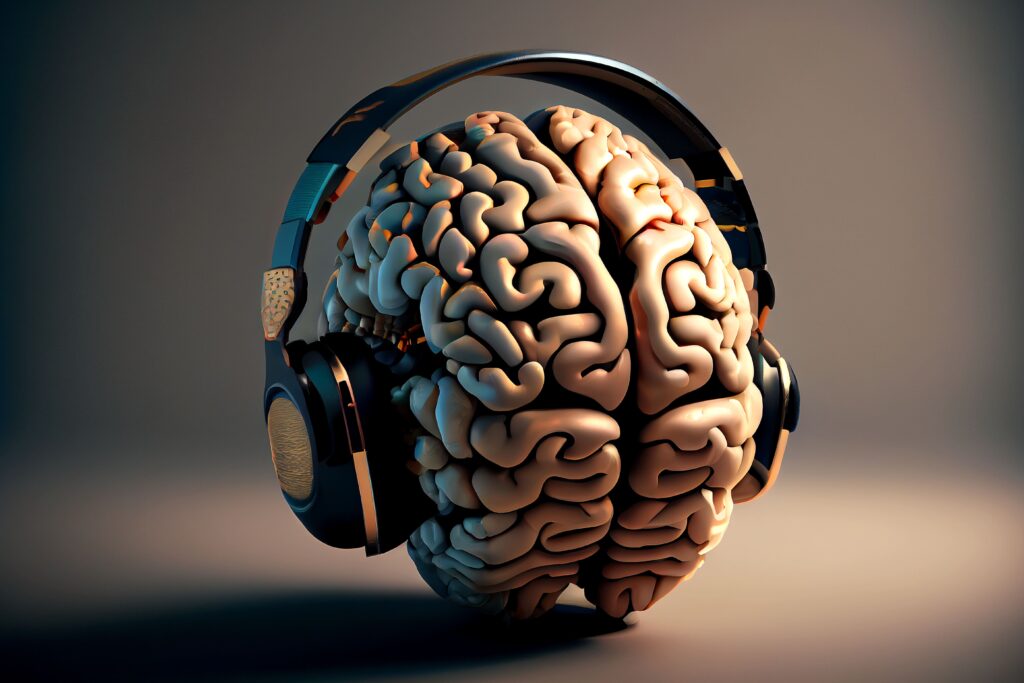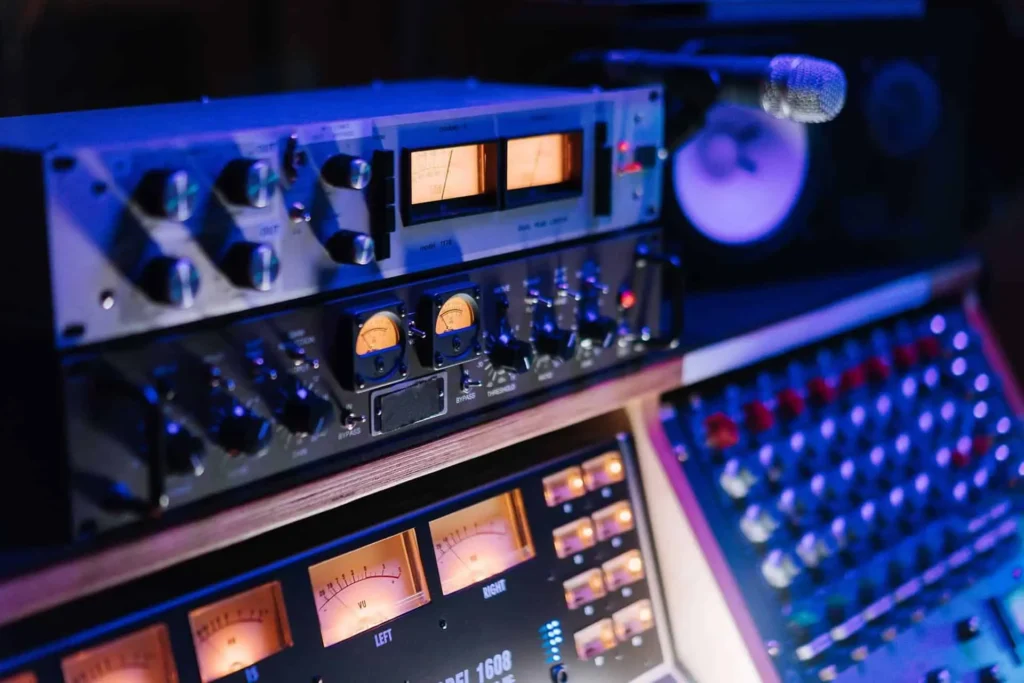As a universal language and a vector of emotions, music is an integral part of our daily lives. In the metro in the morning, in the loudspeakers of a shop, at festive moments…
Music is everywhere and has a significant impact on our psychological development. Numerous researchers around the world have studied the role that music can have on our psychological development.
According to psychologist Thomas Schäfer, music has 129 functions. These include comfort, escape, forgetting problems and joy. So there’s no longer any need to prove that music stabilises moods, helps us to understand each other better and stimulates social links – it’s an immersive experience. Whatever the language, whatever the message, you’ll always be able to perceive the feeling the song conveys.
Music to create and concentrate
According to a 2018 study conducted in the Netherlands on 147 pupils and published in Frontiers in Human neuroscience*¹, music has an effect on learning. The researchers divided the pupils into 4 groups. The first two groups received music training and the other two received art training. They found that the art students developed a good visual memory, while the music students developed a high verbal IQ and a strong ability to plan tasks. The researchers also noted that their concentration and academic results also improved. American psychologist Howard Gardner and Chinese researchers have also conducted studies that have revealed that certain sounds promote creativity and stimulate memory.

In 2006, Canadian researcher G. Rowe and his colleagues conducted a study on the effect of happy or sad music on cognitive abilities. In particular, he noted that happy, upbeat music was better for creative, inventive tasks or for developing new things.
Conversely, sad music would help us find a solution to a specific problem and strengthen our concentration.
Music to heal ailments
Music has a relaxing effect and helps to reduce cortisol levels (the stress hormone). According to research, music, music therapy and sound therapy can relieve sufferers by alleviating their symptoms and pain. This is the case for osteoarthritis, for example, or chronic pain such as headaches or backache.

Music to combat Alzheimer’s disease*².
A disease which, according to the France Alzheimer foundation, will affect around 1,200,000 people in France in 2019. For patients suffering from this disease, music therapy is proving effective in alleviating the symptoms and can also improve their memory. A great deal of research has also been carried out on psychiatric wards and on people suffering from strokes and Parkinson’s disease. They have revealed that music is an effective therapeutic tool. It eliminates stress and relieves pain. It also improves the motor skills of stroke victims and people with Parkinson’s disease.
At Hong Kong’s Queen Mary Hospital, Y. Chan, a doctor who performed colonoscopies, found that patients who listened to music during the procedure felt less pain than those who had undergone the procedure in silence.
Music to soothe the mind
Music is said to have an impact on our moods and can help calm anxiety. Learning to play music develops a number of qualities, such as patience. Solfeggio gives children a better understanding of shapes and notions of duration (a quarter note lasts one beat, a half note two beats…).
Songs and certain melodies also help to communicate better and calm babies and young children. Playing lullabies for your baby is an excellent way of helping them to control their emotions and calm down, whatever the language of the song or the vocal quality of the singer.
Depending on the type of music listened to, social behaviour can be very different. Psychologists Rona Fried and Leonard Berkowitz, from New York University, had students listen to three types of music:
1- Calm music
https://www.youtube.com/watch?v=dAFrRuSaLiI2- Stimulating music
https://www.youtube.com/watch?v=FGwBJbhvD2U3- Unpleasant music
https://www.youtube.com/watch?v=TuzfMR-7v1IAfter the audition, each student was free to go home, but just as they were about to do so, the experimenter announced that she had a favour to ask of him: she had to help him complete a piece of work commissioned by a professor at the university; she claimed to have very little time, and was asking for help to get out of this predicament.
In the absence of music, 60% of the students agreed to help her. After listening to Mendelssohn, this figure rose to 90%, with stimulating music producing no noticeable improvement and unpleasant music causing a 15% drop in goodwill. We also know that a positive mood activated by external stimuli encourages people to help others, while a negative mood has the opposite effect. Since music affects mood, the figures could be explained by this mood priming.
Music to manage emotions
“Listening to or learning music is a way of managing your emotions”.
According to researchers at the HeartMath Institute*³ music has a direct impact on the behaviour of our vital organs such as the heart and brain*⁴.
Learning music, or making music, for an introvert, for example, can be an excellent way of expressing emotions much more freely. If only by performing in public at end-of-year shows or during auditions. This helps them to manage their stage fright and their emotions more effectively.

“Music softens morals”?
Aristotle’s maxim should be taken with a grain of salt. In fact, music reduces stress, helps us to manage and understand our emotions better and has a positive effect on the human brain.
But it can also have the opposite effect. In one of its articles, the journal Pediatrics referred to the much more harmful effects of sound on an individual’s behaviour and character*⁵.
In his analysis, the researcher explains that fans of rap, rock, electro metal and punk tend to behave much more deviantly than those who listen to pop or classical music.
Music has also been used as a veritable weapon of torture. During the invasion of Panama in 1990, for example, the CIA played heavy metal*⁶ day and night to get General Manuel Noriega out of his asylum, the Vatican embassy.
In 1993, the FBI also adopted the same method to catch members of the Davidian sect in Waco. It opted for Nancy Sinatra ‘s ” These Boots Are Made for Walkin’ ” and the screams of slaughtered animals.
In such cases, music can provoke anger, depression or disgust in those who listen to it.

In a nutshell,
Music has the power to bring out the worst and the best in human beings. On the other hand, it can be an extremely useful means of healing, soothing and making people happy. Music crosses oceans and travels the world without language barriers or communication limits. That’s why it’s a great way to get an important message across or to get people talking about you through sound communication.
Find out more
Want to give your brand more personality? Contact us*Sources :
- *Frontiers in Human Neuroscience: https: //www.frontiersin.org/research-topics/10709/the-effects-of-music-on-cognition-and-action
- *² Fondation France Alzheimer: https: //shorturl.at/elu39
- *HeartMath Institute: https: //www.heartmath.com/
- *⁴ Cardiac Coherence and the HeartMath Method: https: //www.educh.ch/prevention/historique-de-la-coherence-cardiaque-et-methode-heartmath-a1311.html
